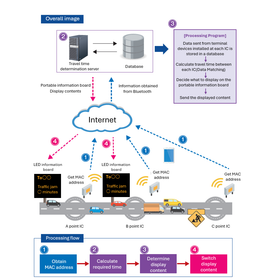Stirling engine performance testing apparatus
This is a very suitable teaching material for demonstrating thermal engineering, as it is a heat engine similar to the Carnot cycle that heats and cools gas within a cylinder and converts the thermal energy from its volume changes into work. The power generated by the engine is converted into electrical energy (W) using a motor generator or into mechanical energy (Nm) using a torque meter. Additionally, experiments on refrigeration cycles can be conducted using an external power source (sold separately). The included interface and software can display in real-time the cylinder pressure (kPa), rotational speed (rpm), cylinder volume (cm³), crank angle, and temperature data from both the heating and cooling sides of the displacer on a PC (sold separately), and can draw P-V diagrams to estimate the efficiency of the Stirling engine.
Inquire About This Product
basic information
04372-00 Glass Stirling Engine Dimensions and Weight: 290L x 200D x 150H mm, approximately 700g Rotation Speed: Maximum approximately 800 to 900 rev.min-1 (no load) Maximum Output: Approximately 1W Power Piston Volume: Minimum = 32 cm3, Maximum = 44 cm3 Caution: The measurement tolerance range of the rotation sensor is up to 1000 rev.min-1. If the rotation speed exceeds this, the sensor display may malfunction, so please control it to remain below 1000 rev.min-1.
Price range
Delivery Time
Applications/Examples of results
4372C Component Configuration 1. 04372-00 Glass Stirling Engine 2. 04372-01 Motor Generator Unit 3. 04372-02 Torque Meter (Prony Brake) 4. 04372-04 Alcohol Lamp and Chimney 5. 04372-10 Data Logger Module 6. 07361-01 Red Wiring Cable 500mm (2 pieces) 7. 07361-04 Blue Wiring Cable 500mm (3 pieces) 8. 13615-01 Thermocouple Nicr-Ni (2 pieces included) 9. 14580-61 measureLAB Software *Each of the above parts can be purchased individually. Delivery Record: Tokyo Institute of Technology, Toyohashi University of Technology, University of Electro-Communications, Shiga Prefectural University, Meijo University, Daido University, Kanagawa Institute of Technology, Nagano National College of Technology, Kagoshima National College of Technology, Suzuka National College of Technology.
Detailed information
-

P-V diagram measurement screen reference diagram (PC sold separately) measureLAB software operating environment OS: Windows 8/10/Mac 10.9 or later CPU: Core 2 Duo 2GHz, i5 2.4GHz or higher Required memory: 4GB or more Required disk space: 8GB or more Display: 1280×720 or higher File output: CSV, EXCEL format *Please note that the software will be in English.
-

Data logger module installation photo
-

Motor generator unit installation photo 04372-01 Motor generator unit Motor supply voltage: maximum 12V (refrigeration cycle operation) Indicator bulb: 4V/40mA Belt diameter: 150mm (circumference approximately 475mm)
-

Torque meter (probes brake) installation photo 04372-02 Torque meter (probes brake) Measurement range: 0~25.10-3Nm Resolution: 1・10-3Nm
-

Refrigeration Cycle Experiment You can drive the motor using an external power supply (maximum DC12V) to demonstrate the refrigeration cycle. The left photo shows an example of an experiment using a stabilized power supply (sold separately), where it can be seen that the temperature on the heating side of the display is decreasing.
-

Variable Resistor Model: 06116-02 Can be connected to a motor generator unit to provide variable resistance to a Stirling engine. Resistance value: 330 ohms, ±10% High load capacity: 1.0 A Short-term load: up to 1.4 A for 15 minutes Dimensions: L420×D90×H150 mm
Company information
Megakemu designs, manufactures, and imports various experimental and practical equipment for universities, junior colleges, technical colleges, high schools, and vocational schools nationwide. While the world has made advancements in various fields, it seems that our Earth's environment is being disturbed by ourselves and is approaching its limits. The world is seeking new Japanese technologies that coexist with the Earth's environment.









